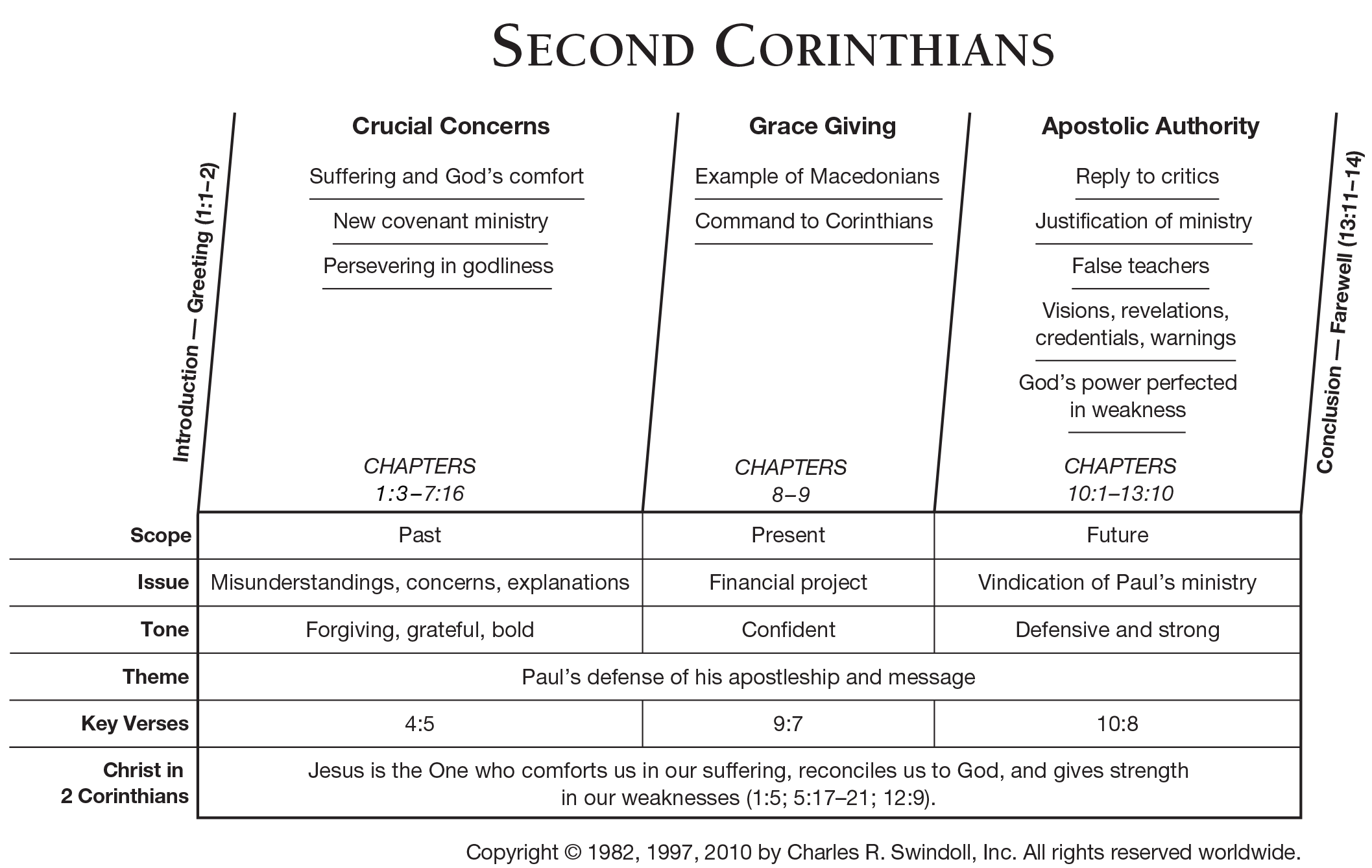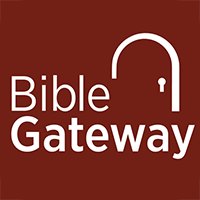Like a good detective, let's examine this book.
🔥 Overview
After a confrontational previous letter, Paul is writing to the church he planted again. This time, he is offering forgiveness and grace. He continues to answer questions they have and pointing them to a life of faithful holiness.
🔍 Things to Notice
- Paul lays out many of his trials.
🙏 Jesus in this Book
(Every book reveals the glory of God, revealed in Christ Jesus)
- He is the down payment of what's to come
👀 Themes
- Paul's defense of his Apostleship and message
- Being a godly example
- Replying to critics
- God's power is made perfect in weakness
😀 Who?
Who wrote it: The Apostle Paul
Martyred: Killed by Nero between 62 and 64 A.D. He beheaded. There were many more gruesome ways to die so this was considered a merciful death for a Roman citizen.
Who is the original audience: Church in Corinth. Extremely carnal, gentile church. The "Las Vegas" of the first century.
🪧 Where?
Where are we: After writing the first letter, Paul visits the church in Corinth. Later, he returns to Ephesus. He later leaves for Macedonia and possibly wrote this letter while in Philippi.
⏳ When?
When was it written: 56 AD.
🤔 What?
What is the big idea: The church had Corinth is still struggling with divisions and quarreling. Paul's previous letter had helped a lot and they were now repentant. Paul is now needing to defend his position as an apostle and his message to the church.
🧐 Why?
Why is this book important: This letter offers a lot of personal insight into Paul's life and ministry. He doesn't shy away from expressing his trials and tribulations. However, he also reminds the reader he walks into each trouble with his head held high because he is honored to serve the Lord. When we serve Christ, trouble with come. We cannot stop trouble from coming. We can choose how we walk into it. We can walk with our heads held high and refuse to be a victim. We are overcomers through Christ.
📝 How?
How can I apply it?: Living in unity is hard. As a church, we do not drift toward unity. We drift toward selfishness, disunity, and division. We have to work at it constantly. Paul helps us understand how to grapple with this as a group. He also helps us see the troubles we face from the view of Heaven. We can see our trouble as an honor because we are called to serve the King of all Glory.

Quick Thoughts on Each Chapter
Chapter 1: This letter is most likely the 3rd letter to the church. The second was lost inspired by God and lost to time. Paul is responding to the churches handling of the instructions of his first letter as well as setting up more doctrine. The church in Corinth unfortunately had many issues to work through, but God knew we would need their lessons.
Chapter 2: Verses 5-11- Without having the other side of the story, this passage might seem confusing. It is possible that someone stood in opposition of Paul and his letter of correction. From this passage, it did not go well for him and he was likely removed from the church community. Paul is urging them to forgive this man and restore him if he is repentant so they will not be used by Satan as a stumbling block.
Chapter 3: If we read Psalms to understand how to relate to God, we read Proverbs to understand how to relate to people. Proverbs is full of statements of generally truth. By this, I mean that all of Proverbs is divinely inspired by God. However, these statements are "generally" true because you always have two unpredictable factors; me and you. Therefore, God gives us wisdom on what generally happens between me and you.
Chapter 4: Verses 16-17- God's Word reminds us again and again to not only focus on our outward life, but even more on our inward life. It is so easy to see what we are currently experiencing as lasting forever. It's really only a moment. Remember, Paul was experiencing constantly and consistent persecution that makes most of our issues seem much smaller. That isn't intended to lessen our struggles, but to say that Paul is not unacquainted with grief.
Chapter 5: Verses 3-10- Paul has a very different idea of serving others than many others. He sees serving as enduring love not pushing forward. How does this stack up with your idea of serving others? How are you currently doing this in your life?
Chapter 6: Verse 14- This has long been a controversial verse. It is important to have healthy boundaries with those who actively disagree with your relationship with God. The idea is to be "with the world" without being "of the world."
Chapter 7: Verse 1- Why do we work toward holiness? Because of the great love of God and His promises to us. We live for Him because we are already so very loved. Jesus loves us enough to show us anything that is stealing our freedom.
Chapter 8: The importance of generosity. Paul is encouraging the church to be generous with its finances. Show me your bank account and I'll show you your priorities.
Chapter 9: One of the reasons Paul is raising money for these other churches is because following Jesus sometimes meant losing your livelihood. So different from many other cultures throughout history.
Chapter 10: Verses 3-6: God's Word reminds us that the real battle is spiritual. Therefore, do your best not to get mad at people. Get mad at the devil and declare war in the spirit world with prayer.
Chapter 11: Paul takes time to call out false "apostles." It is important to see how he does this. He calls out false teaching without calling out people by name. Many times it is enough to simply call out false doctrine and point toward Jesus. Make sure Jesus is always the main point of the conversation.
Chapter 12: Paul's "Thorn in the Flesh." Paul speaks of some type of issue in his life. We don't know what it was but many have suggested the following: an eye disease that cause him to be blind, epilepsy brought on by all his beatings, mental torment over his past crimes against Christians.
Chapter 13: When Paul arrives, he will have to judge ongoing issues between their relationship with God and with each other. Therefore, he is warning the people to prepare themselves to give an account. The lesson we can learn is to always live with "short accounts" with others and with God.
Resources
Link: Insight for Living (The graphic above comes from here)
Link: Bible Hub
Link: Got Questions
Link: Life, Hope, And Truth
Link: Jesus in Every Book of the Bible
Link: The Bible Project (Quick videos about the Bible)
Read the Bible Online
















